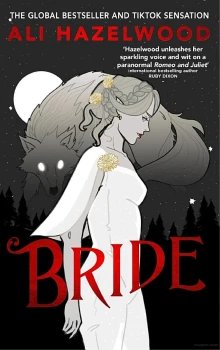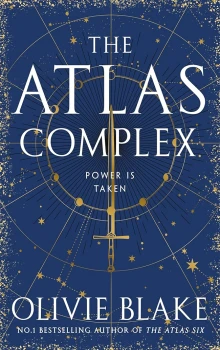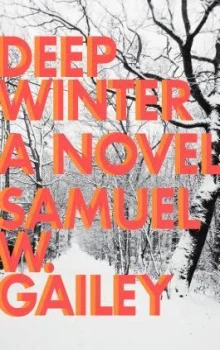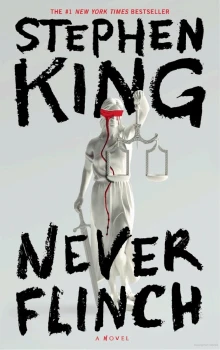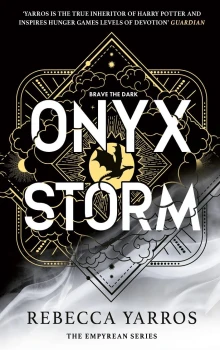9
Since HomeMarket was the place for “Thanksgiving every day of the year,” you’d think it’d be empty the day before actual Thanksgiving, when people would make their own versions of the menu items from scratch, surrounded by loved ones, but you’d be wrong. The store was slammed. It turned out a lot of people preferred to buy HomeMarket’s side dishes in plastic quarts to reheat the next day, probably claiming they made it themselves. This was in addition to the regulars: folks who had no time to cook, with two or three jobs, nurses on night shifts who slept during the day, veterans from the soldiers’ home by the mill, maids who worked overnight cleaning the business park, and truck drivers who would spend Thanksgiving in the backs of gas stations, video-calling their families from oil-sticky laptops.
By noon the store was overrun. Five minutes after Hai brought out a boiling vat of sweet potato pie, Russia’s spatula clanked the metal bottom and it was gone. They were so behind they ran out of boilers and had to heat the mac and cheese bag in the dishwasher’s hot water rinse to get it started.
The corn bread ran out and Hai was hurrying back to scoop more batter into baking molds when he heard Maureen’s gravelly voice behind him. “You know it’s cake, right?”
“What’s cake?”
“BJ’s recipe? It’s just cake.” She was spraying the molds with a canister of cooking oil the size of a fire extinguisher. “She buys vanilla cake mix in bulk from Costco, right? Then mixes it into the company corn bread recipe.” Maureen leaned in and grinned, the whiskey sharp under her breath. “That’s it, rook. That’s the big secret. Cake.”
“Sounds pretty ingenious to me.” Hai tried to wink but only managed to blink with both eyes.
“I could’ve been a manager too, you know.” Maureen grabbed a metal spoon and started filling the tins with batter. She was offered promotion many times, she said, but turned it down. Managers get $15 an hour and Maureen was already at $13.50. “A buck fifty’s not worth the headache, kid. Or the blame. Here, give me a hand.”
They loaded the tray together and Hai set the timer. “Well, whatever’s in it,” said Hai, “BJ’s recipe is pretty dope. Everybody’s crazy about this stuff.”
“Dope is right. Corn cake, as our dear leader has concocted it,” she bent and scooped more mix into the vat, “is essentially a narcotic. It’s all sugar, and my doctor says sugar spikes your insulin, which makes you hungry even if your belly’s full of meat loaf. And hunger’s good for business.” She picked up a corn bread cooling on the rack and let it rest in her palm.
Hai poured in the water and set the mixer as Maureen rambled on.
She broke the corn bread in half and bit into it, dabbing her lips with her apron, and handed Hai the other half. “The reason why it’s so good,” she lifted her head, “is because it’s a lie. And incredible things can come out of lies. Just ask good ole Uncle Sam.”
“You’re telling me this HomeMarket is the third-most-grossing because of sugar?” Hai swallowed.
“Listen, we deceive people by calling this bread. Bread sounds wholesome. You tell the public this is boring old bread, but then it hits their tongues and—boom—it’s cake! And even if it’s the shittiest kind of cake, which it is, they’d think they’ve eaten the best bread in the world.” Sony rushed in to grab a finished rack of corn bread and headed back to the front. “But the question is…” She leaned in, her left eye bloodshot and smeared with eyeliner. “At what point, my friend, does the corn bread become corn cake? Can you locate the crumb where this deception happens?” She waited for an answer, her arms swaying at her sides.
Hai considered this. Indeed, at what granular material moment did bread become cake? Or was it always cake, falsely named to amplify bread beyond its potential? “That’s kinda fucked,” he nodded, biting into another one. “I can’t tell.”
“Once you realize they’ve lied to you, you lose faith in their fucked-up systems. Searching for another purpose, you start to root for outsiders. Underdogs. But then you realize the underdogs are nowhere to be found, the media has hidden them from you, the prisons and madhouses have locked them up, so you think you’re the only one out there losing your mind when in fact there are many like you, trapped in this supposedly free world of work and sleep and endless fucking cakes.”
She stopped to gather herself. His eyes started to burn, there was so much whiskey coming off her.
“Let me guess, this all links to the lizards living under the earth’s mantle or whatever? Also, are you drunk? I mean, are you too drunk? You wanna go ice your knee in the freezer or something?”
She swatted at his chest, a cloud of flour floating between them.
“Me, drunk? What about you, with your pinprick little pupils? You don’t think I know you’re blasted yourself, Mr. Pill Popper?” He was making his way fast through the bottle of Dilaudid, and lately needed two pills just to make the shifts float by a little smoother.
“Listen here, this country,” she lowered her voice, “was purposefully built on war. The reptilians shape-shift into politicians and celebrities, then use these puppets to start wars so they never run out of bad energy to consume. Don’t you get it? War is fertilizer for their crops.”
Usually quiet save for the occasional wry comment, Maureen was one of those drinkers who turned into a radio program half a flask in.
“But wouldn’t scientists, like, be able to measure these bad vibes somehow?”
She laughed. “Oh, my poor naive little boy. Once upon a time, they also said women in Salem had to be burned alive because science said they were witches. And then that science became law. Now they use science to get people to bomb each other. Like I said, rook,” she suppressed a smile, “everything in this world is Star Wars. Good versus evil. Dark and light. There’s the Jedi and then there’s the Empire. And in case you haven’t noticed, I’m Obi-Wan Kenobi, and we’re running out of time.” She reached into her apron pocket, pulled out her flask, and shook it by her ear—empty. The oven beeped. Her eyes were watery. Another tray of cakes was done.
They blew through the service without anyone taking a break. Russia’s voice had gone hoarse from constant shouting into his headset. And between the steam from the heating vats, the dishwasher, the ovens, the place must’ve been over a hundred degrees. At one point Wayne put his head under the sink faucet out back to cool down. Maureen’s sports bra had soaked through her uniform. Sony pushed a stool under her so she could ring people up sitting down for the rest of the shift.
When things died down and the windows darkened, an elderly man with a cane came in, his spine a jittery question mark, and grabbed his steaming tray from the counter and just stood there wobbling a bit. He opened and closed his jaw as if warming it up, then raised his chin, and you could tell there was a Boy Scout somewhere inside him standing up straight. “I’d just like to say thank you for being open during the holidays. You folks, you’re saving a lot of people from heartache, you know. From eating alone around Thanksgiving. And…and—” He bit down, chin juddering, then shook his head, lifted his cane in a kind of salute, and shuffled away.
The crew didn’t believe they were saving anyone from anything—but each of them was filled with a rare and unnameable pride just to hear him say it. Wayne stood tall and tipped his cap, then carefully smoothed out his uniform, which was dappled all over with grease.
The next day, while reading in bed, Hai smelled something burning and left his room to investigate. He found Grazina in the hallway staring out the port window overlooking the river.
“Grazina,” he said to her back, his hand hovering behind her. He bumped against one of the many boxes piled along the hall, and she turned around, wiping her eyes with her knuckles.
“Labas, that you?”
He paused, not sure whether to bring up Sergeant Pepper. “It’s me. It’s alright.”
“Labas, please help me. Come here, boy.”
She clutched his arm and held it to her side, then stepped into the window’s light, where he saw that her face was someone else’s. Her hands shook as they hovered around her cheeks. “Look,” she said, dipping her head to one side, revealing a cluster of shiny, congealed hair. It looked like syrup had been poured on the side of her head.
“I was trying to curl my hair but it burned. I wanted to make it prettier. I look better with curls.” She pointed to the curling iron on the floor. Hai picked it up, clumps of grey stringy curls glued to the prongs, which were still warm and had the sickening sulfuric odor of singed hair.
“Hey. Who’s the president right now?” he asked, setting it down on the nearby mantel.
“What? Oh, Obama,” she said, annoyed. “I’m not crazy now, I’m serious.” She looked at him steadily. “Can you fix my hair? I melted her.”
“ ’Course we can fix it. Hair grows back, remember? You’re not burned, are you?” He scanned her neck and collarbones.
She shook her head.
Under the shaky vanity light, of which only one bulb out of four remained, Hai started giving the first haircut of his life. Grazina sat on the toilet seat, still and stoic, her lips upturned as the burned hair fell about her feet like dead insects. The clipper, which looked half a century old, buzzed dully as he went along, occasionally stopping when he paused to gauge his work. Soon her head came into shape, the forehead wide and framed under an inch of bangs. Yes, it was a bowl cut, the same one he wore himself, though a bit shorter by necessity, as some hair on her left side had burned nearly to the roots.
He stepped back and took stock of his efforts. “You look kinda like Julius Caesar.”
She faced the mirror, turning to catch the angles. “I look more like a Boris,” she frowned. “I was pretty once, you know. But what can you do?”
Once he had Grazina settled, Hai biked over the rail bridge toward town, the sky above him a unanimous grey. The streets were also grey save for a few crushed pumpkins here and there, burrowed through by squirrels or smashed by kids who stole them off front porches to hurl at telephone wires. Most of the houses in town were empty, the people inside now gathered at finer homes among their kin. By the time he passed Sgt. Pepper’s Pizza, which was closed for the day, the grand opening sign long taken down, Sony was already waiting at the HomeMarket entrance. He was holding a plastic bag from CVS and standing like a tin soldier. “What you got your uniform on for?” Hai said, slowing down. “We’re closed today, remember? It’s Thanksgiving.”
“This is the nicest thing I have. It has a collar.” Sony pulled on the polo’s neck.
“True. Well, Grazina will like it.”
Grazina, upon hearing that Sony was alone in a group home, had invited him over for Thanksgiving dinner. There was a meal planned at his group home, but Sony wasn’t into it since, as it turned out, there were addicts there after all. Folks with special needs like Sony were on the first floor, while the sober living program was on the second. And the dinner was in the cafeteria for everyone in the building, and a couple of the sober living characters made Sony uneasy.
“I brought Goldfish.” Sony raised the plastic bag.
“Then I guess our Thanksgiving meal is complete.”
Sony grinned and climbed on the back pegs, and they rode off. The river issued sheets of steam along its banks, gauzing the current from view. The boys didn’t speak as they rode but Hai could feel Sony’s grip on his shoulders as the plastic bag pattered against his jacket. When they got to the tracks, a freighter was coming toward them and they stopped, the train’s force slamming the ground and up through the bicycle as the cars passed.
“So you’re Sunny? Like summertime, yes?” Grazina said, turning from her pot of cabbages.
“Actually, no. It’s an electronic company from Japan. Well, a TV they made, to be exact.”
“Ah.” She nodded to herself, tasting a spoonful. “That means you’re expensive.” Sony looked at Hai, a bit startled, then forced a smile.
“Labas, taste this. Isn’t it perfect?”
“Perfect,” Hai agreed, licking his lips.
“Fresh cabbages. Lucas brought them over, bless him, my dear boy. He left them on the porch yesterday, and with milk too. No hello, no goodbye. Just drop off and go. He’s always so fresh with me, that one.”
“Oh, really?” Hai said, going along with it. “Did he come from Paris this time?” He’d been hearing about Lucas lately, but unlike the daughter, Lina, Hai hadn’t noticed a single photo of Lucas anywhere.
“No, no, no, he’s around.” She waved the spoon about. “He comes and goes all the time like a mouse, that boy. Sometimes he talks, sometimes you can’t even hear him walk around.”
Hai clocked her medicine tray on the counter, just in case, but everything seemed in order.
He poured Sony some grape soda and took the Salisbury steaks from the freezer. When he mentioned how many Stouffer’s TV dinners he bought each week, Wayne had offered to make him homemade ones from leftover meat loaf at HomeMarket.
“Oh! These are the Salisbury steaks Wayne was making,” Sony said. “Do you know why they’re called Salisbury?”
Grazina stopped and put a hand on her hip, suddenly interested. “Why?”
“Because of James Salisbury.” Sony sat up. “He was a doctor during the Civil War.”
Hai said, “Can we not talk about war for once? It’s Thanksgiving.”
“No, go on. Please. I’ve been eating them for thirty years and no one ever explained this to me.” Grazina wiped her hands on a rag, turned off the stove, and sat down. “This boy is very interesting,” she said to Hai.
James Salisbury, Sony told them, believed that diarrhea, which was rampant among Union soldiers during the war, could be curtailed by consuming coffee and ground beef. “He also believed starches like rice and potatoes caused tumors in the digestive tract, and was the first advocate for a low-carb diet. So he created the Salisbury steak to prove his hypothesis.” Sony lifted the ziplock bag of frozen steaks and marveled at it. “It’s a true feat of Victorian-era innovation.”
Grazina examined the steaks in the bag. “Huh. A kind doctor invented the best dish in the world. No wonder we love it.” She turned to Hai, eyes bright. “Don’t we, Labas? It’s like the carrots! You can taste the goodness in the man’s heart. Even a hundred years later.” She leaned back and regarded Sony. “Thank you for the history lesson. God can be so good to us, yes?”
Sony chuckled nervously. “Well, I suppose. All things considered.”
“You know my father invented fruit salad, right?” Grazina said, one eyebrow cocked with satisfaction. “But of course, the Reds didn’t give him no credit. Wish we had some now.”
“Your dad invented fruit salad?” Sony faced her.
“Of course. You think I tell tall tales? For what?”
When the meal was over, the dishes cleared, the table wiped and set for tea, Sony suddenly grew quiet. By now, Hai had learned Sony’s rhythms through osmosis and could tell when he was drifting further into the sea of himself. Grazina, also sensing a shift in the air, poured the Goldfish into a bowl and sat down. “What’s the face for, boy?”
“Hey, buddy.” Hai leaned in. “You good? You wanna go back or something?”
Sony stared into his cup of untouched tea.
Grazina, catching on, finished chewing a handful of Goldfish and said, “You got the blues now, huh? It can happen on holidays.” She scanned the tiny kitchen. “Great, and we’re out of rolls to step on.”
“I can just take you home and you can go to bed. It’s no problem,” Hai said.
Sony’s hands pressed the table so hard there were heat imprints on the wood when he finally moved them.
“My mom’s not getting out.” He shook his head.
“What? How do you know?”
“I saw her a few days ago. I took the bus up to York Corrections after work.”
“Why didn’t you tell me? I would’ve gone with you.”
He shrugged.
“How come she’s not getting out?”
“Your mama’s in prison?” Grazina put down her tea, eyes wide. “You are very interesting.”
“I dunno why,” said Sony. “They told me all these things, but I didn’t catch much of it.”
“Mommy’s gonna be fine. Easy now.” Grazina got up and wrapped her arms around Sony’s head. “She’s in American prison, after all. Not so bad, right? She won’t die. You gonna hold her again, like this. You’re expensive, and Jesus doesn’t let valuable things go to waste.”
“I would’ve helped,” Hai said. “I don’t care if our moms are fighting. We’re cousins. Just tell me next time.”
“You never helped before. How would I know you would now?” Though his voice was muffled in Grazina’s gown, the words stung.
Hai cleared the table. Sony wasn’t wrong.
“I should’ve made my honey carrots,” Grazina pouted. “We could all use some about now.” She then looked down at her waist and frowned, her palms opened at her sides. “Wait a minute, boys, how do I untie this thing anyway?” She let out a nervous laugh and tried again, but her hands only seemed to wriggle a bit and hover there. She stopped and looked about, confused.
Sony pulled the string on her apron knot and it came loose.
“Ha! Look at this one, Labas! A little genius, this boy.”
Before long they settled on the couch to watch a movie. Sony had brought a VHS of his favorite film, Gettysburg, starring Jeff Daniels, a movie he’d been watching since he was ten. This was actually his third copy, the others lost or worn out from being played on a nearly endless loop. Every time Hai visited Sony as a kid, it was on in the background like a kind of weather.
Sony was giddy as he pushed the tape in the old RCA and settled in between Hai and Grazina. “Do you know this is the battle that changed the course of the war?” he said as the opening credits came on. “And it was all an accident. Lee lost contact with his cavalry officer, Jeb Stuart, and wandered right into the Army of the Potomac. Can you believe it? The biggest turning point in the course of our country happened because somebody got lost.” You could hear the smile in his voice in the dark.
“I believe it,” Grazina said, grabbing a handful of Goldfish from the bowl.
The movie was over four hours long, and Hai could hear Grazina drifting in and out of sleep, snoring, then startling awake by rifle volleys and lunging at the bowl of Goldfish. Sony sat up the whole time mouthing the lines, grand speeches by grey- and blue-clad officers urging their “boys” to die in one bayonet charge after another.
“It’s not so hard to kill,” Grazina said sleepily when a Confederate soldier was impaled by a bayonet as he ran up a tree-lined hill. “You just touch something until its color changes.”
It was such an odd thing to say that Hai bent over to check on her. “Grazina,” he whispered.
“What?”
“Who’s the president?”
She pointed at the TV. “Lincoln.”
It was good enough. By the film’s crescendo, she was passed out for good. “This is Pickett’s Charge.” Sony swayed in his seat. “Robert E. Lee’s biggest mistake in the war. Arguably. A suicide march against Meade’s cannon barrage, the largest in the history of all Napoleonic-style battery engagements, ricochets heard all the way in Washington.” He leaned forward, munching on more Goldfish.
“Let me guess, you’re about to tell me this is where the picket fence came from?”
“No, the charge was named after one of the generals, George Pickett of Virginia. He never forgave Lee for ordering it. And for good reason. Pickett lost two-thirds of his division in just forty-five minutes. Lee was an overrated tactician, if you want my honest opinion. Not even close to Grant.”
As the bodies piled up during the failed “charge,” which to Hai looked more like a parade of bearded men walking slowly across a smoldering field and getting slaughtered in droves, Sony said, so quiet he barely heard it, “Everything bad always happens to the South,” and crossed his arms and fell back on the couch, deflated.
“What you talking about? Hey—you okay? You’re acting weirder than usual today.”
“The South always loses. That’s the rule.”
“As they should. They were, like, huge dicks. Look.” Hai gestured at the screen. “They walked across this big-ass field and got shot up just to keep slavery going.”
Sony wasn’t listening, though; he was drifting deeper into something. “My dad was a corporal for the South and they got smashed. Now he’s in a shack in Vermont and all he does is listen to old records and cry to himself reading books about maps.”
“You’re joking, right? That’s a whole nother war.”
“I know. But the norths and souths are the same everywhere on the compass. It’s just the rule.” He turned to Hai, his mouth slightly parted. “Hey. You think my mom’s gonna be okay? She’s got nothing to do with any kind of south, right?”
Outside, moonlight broke through the clouds, making the abandoned houses through the window seem new and clean.
Out of desperation or stupidity, he couldn’t tell, Hai pinched a single Goldfish and made it swim toward Sony, then toward where his head scar began. Sony fixed his eyes on the cracker as Hai made it swim down his cousin’s scar river—just like the one running outside the house, the skin smooth and reflecting the light from the corpses on TV—all the way back to the nape of his neck, where it left the river, swimming around his head, past Sony’s eyes, which had brightened with a mix of confusion and delight, and into Hai’s opened mouth.
Sony giggled, covering his teeth like a child. “That’s gross!”
Hai shrugged, chewing. “Tastes a lot better now, though.”
They settled into the end of the film. After the credits rolled, and Sony was asleep, Hai slipped upstairs to call his mother. Alone in the dark, it was good to hear her voice. He was sorry he couldn’t be there for the holiday, and she told him it didn’t matter since they never celebrate anyway. But he knew his absence, like all the other times, hurt. She must’ve decorated so many women’s nails with turkeys and bright orange leaves and pumpkins all week, her clients gushing about their big family plans. “I’m doing well, Ma,” he said. “I’m making money too. As an assistant in a medical lab on campus. It’s not much but it’s something.”
“I knew you would, baby,” she whispered. He said he’d send her a check, which she refused, saying he should repay instead the money owed from his first time at college. And when she mentioned she had made herself rice porridge and was sitting by the altar “eating it with Bà ngoại,” he couldn’t bear it and made an excuse to wrap up the call and hung up.
He came down with blankets and made makeshift mats on the floor for him and Sony, who stirred, disoriented, then crawled down from the couch and stretched out. Hai laid Grazina on the sofa, removed her glasses, put her bottom denture in a glass of water, draped a quilt over her shoulders, and finally lay down himself. He stared at the ceiling. He could hear Sony scratching his head, probably running his finger through his scar, something he did in moments of idleness. Then Sony said something, just under his breath, either to Hai or to just give it to the air, he couldn’t tell. “Why do I feel so terribly sad?”
That was it.
Hai kept very still, pretending to sleep. He told himself if Sony said it again, if he asked for anything else of him, anything in the world, he’d bolt up and tend to it, he’d throw himself at the boy and answer any questions he’d ever had. He would never walk past him while the bullies called him names again. But Sony didn’t say anything else. And the night smoothed out into a quiet stillness, with only the wind creaking the eaves of the house. And Hai didn’t know which of them fell asleep first, but he hoped it was Sony. He hoped it was his cousin with a river running through his head, full of Goldfish.

